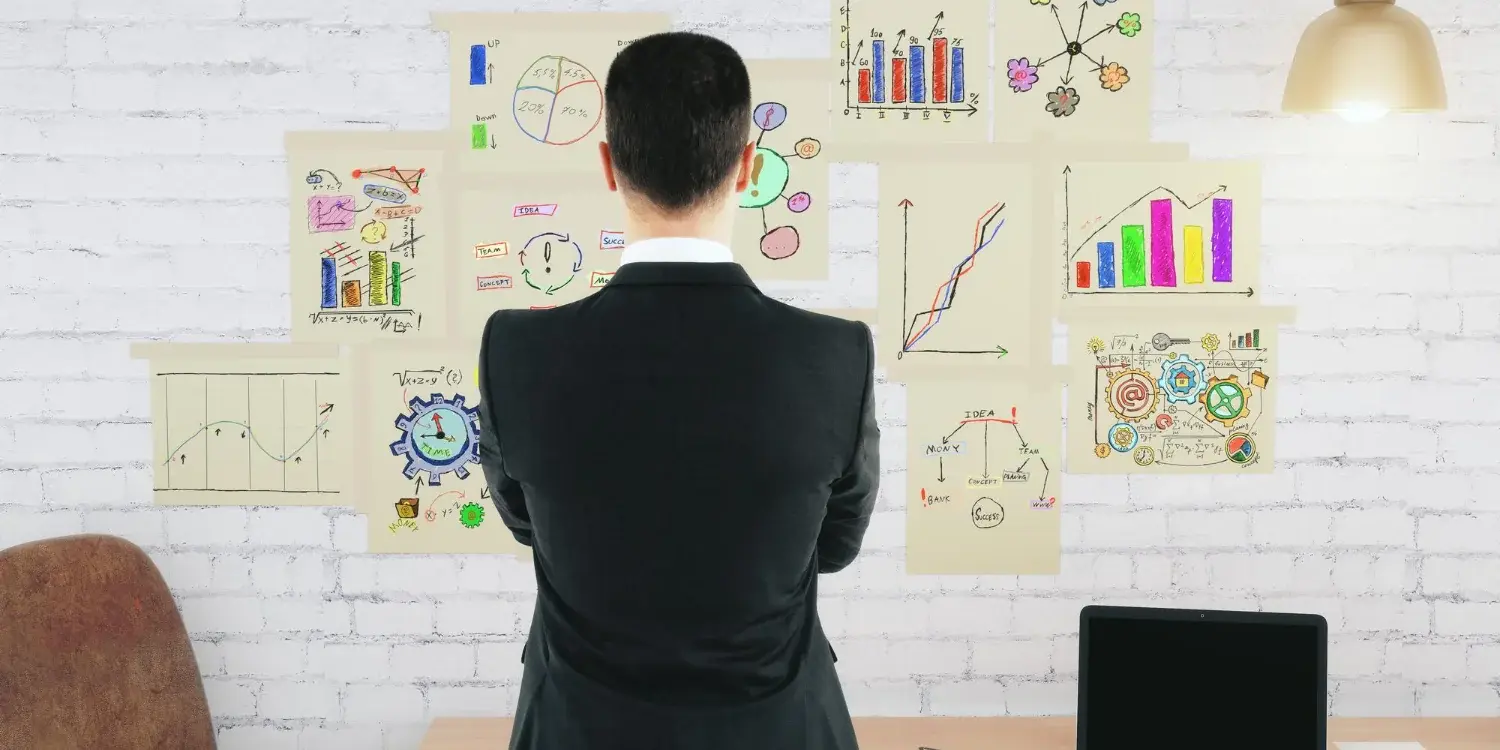Mastering Focus: Stay Productive Amid Endless Distractions
Have you ever found yourself opening your email to quickly reply to a message, only to be pulled into a vortex of promotions, newsletters, and irrelevant news that's vying for your attention? Before you realize it, that five-minute check has turned into half an hour or more, pushing important tasks to the backburner. Let's face it—distractions lurk at every corner, from buzzing notifications to countless browser tabs craving your click.
In our always-connected age, losing focus has become increasingly prevalent, making sustained attention a rare and valuable skill. The good news? Staying laser-focused despite a world filled with enticements isn't just a lofty wish—it's entirely achievable. By embracing proven strategies and practices backed by psychology, neuroscience, and productivity experts, you can sharpen your cognitive performance and get tangible results in your daily workflow.
Ready to reclaim your attention and strengthen your productivity game? Here are strategies designed precisely for navigating the noise-filled chaos and regaining command of your focus.
Embrace the Power of Deep Work
In his influential book Deep Work, author Cal Newport argues convincingly that “focus is the new IQ.” Newport defines deep work as focused, distraction-free efforts that push your cognitive capabilities to the limit—delivering immense professional value. Adopting techniques geared towards deep work is essential for high-quality, purposeful output.
One popular method is intentionally scheduling focused work sessions. Place boundaries around your deep work hours, clearly defining these time slots in your calendar. Another effective method is to establish rituals or cues—like a designated workspace or a playlist—that signal your brain it’s time for uninterrupted focus.
For example, Microsoft CEO Bill Gates famously retreats for “think weeks,” completely isolating himself from daily distractions to intensely focus on innovative ideas. He credits these deep dives for some of Microsoft's most significant breakthroughs.
Design Your Environment for Success
Your surroundings significantly impact your cognitive performance, either positively or negatively. According to behavioral economist Dan Ariely, author of Predictably Irrational, your environment dictates decision-making more than sheer willpower does.
Begin by evaluating and curating your workspace. Keep only work-related items within sight—this can mean physically clearing visual clutter or using minimalist desktop setups digitally. Another effective practice involves using tools like website-blocking software to remove common distraction triggers (goodbye social media notifications!).
Here's a real-life application: A colleague of mine mentioned that simply turning her phone on silent mode and placing it face-down reduced unnecessary phone-checking by a significant margin, noticeably enhancing her productivity.
Adopt the Pomodoro Technique
Breaking your work into focused, manageable intervals can significantly improve attention. This concept lies behind the Pomodoro Technique, created by productivity expert Francesco Cirillo, who stresses working for 25-minute intervals (“pomodoros”) with five-minute breaks in-between.
Implementing Pomodoro effectively involves clearly defining tasks before you start the timer, then committing exclusively to one task within that interval. Additionally, taking physical breaks—stretching or walking briefly—avoids burnout and maintains sustained focus.
One marketing executive I know swears by this technique. Using a simple kitchen timer initially, she realized her productivity soared when working in clearly defined intervals rather than pushing continuously for hours without structure.
Prioritize Tasks With the Eisenhower Matrix
Managing multiple obligations simultaneously is overwhelming and detrimental to concentration. Enter the Eisenhower Matrix, inspired by former U.S. President Dwight D. Eisenhower’s insight: "What's important is seldom urgent, and what's urgent is seldom important."
This decision-making tool helps prioritize effectively by categorizing tasks as urgent/important, important/not-urgent, urgent/not-important, and neither urgent nor important. Each category guides strategic decision-making, clarifying what demands your immediate focused attention and what can comfortably wait or be delegated.
Take entrepreneur Tim Ferriss, who regularly employs this matrix. Ferriss acknowledges it not only helps prioritize better but also reduces anxiety about scattered tasks, creating clear mental bandwidth and improving effectiveness.
Utilize Mindfulness and Meditation
Practices rooted in mindfulness, meditation, and breathing not only manage stress but deeply enhance your cognitive performance. As neuroscientist Amishi Jha's research indicates, regular mindfulness meditation significantly improves working memory, attention span, and cognitive flexibility.
Begin your journey into mindfulness by dedicating as little as five to ten minutes daily to deliberate deep breathing and quiet reflection. Alternatively, using mindfulness apps like Headspace or Calm can help weave mindfulness seamlessly into daily routines.
For instance, a friend dealing with incessant multitasking found that regular use of guided meditations improved attention greatly. After just two weeks of consistent meditation, they reported increased mental clarity and an ability to dismiss distractions quickly.
Master Single-Tasking for Peak Productivity
Multitasking often feels productive, but research overwhelmingly demonstrates it reduces effectiveness. According to Dr. Glenn Wilson from the University of London, habitual multitasking drops IQ scores similarly to losing a night's sleep.
To counteract multitasking habit, practice single-tasking diligently. Dedicate your full attention solely to one project or task at a time. Additionally, batch similar tasks, grouping related activities like emails or phone calls for one concentrated period.
A startup founder once shared his realization that single-tasking dramatically improved his business decisions. By focusing deliberately on one key issue at a time instead of scattering his attention, he boosted both stress management and decision quality.
Cultivate an Intentional Digital Hygiene
Our connected gadgets constantly pull attention away from deep, meaningful work. Digital hygiene practices intentionally set boundaries for technology use, improving our overall cognitive performance and reducing attention fragmentation.
Try incorporating “tech-free zones” into your daily routine—time periods or places like your dinner table or bedroom during certain hours that remain gadget-free. Additionally, perform regular digital decluttering, unsubscribing from unnecessary emails or notifications that consistently distract.
Consider the classic example of novelist Jonathan Franzen, who famously removes internet access during his writing sessions. Franzen argues this deliberate digital abstinence greatly boosts his creative output and sustains his mental stamina through demanding writing spells.
Optimize Your Physical Health to Boost Cognition
Physical well-being directly affects our brain’s ability to concentrate. According to Harvard Medical School, regular exercise boosts blood flow to the brain, increasing cognitive function, sharpening focus, and raising mental stamina dramatically.
Incorporate physical activities that stimulate overall cognitive wellness. Engage in cardio exercises like running or cycling for 20 minutes daily, and ensure hydration levels remain optimal to support cognitive performance. Prioritize resting adequately—with proper, consistent sleep—since fatigue directly diminishes your attention abilities.
A manager I recently coached was astounded at how adding short morning runs and increasing sleep hours noticeably heightened his productivity at work within weeks.
Conclusion
Mastering your ability to concentrate amidst today's distractions is essential for professional and personal growth. By adopting intentional strategies, reshaping habits, choosing proven approaches, and ensuring physical well-being, you cultivate exceptional cognitive performance each day. Why not give yourself an additional advantage? Boost your focus and get support enhancing productivity with today's best tools, like the productivity app.
focus improvement, cognitive performance, time blocking, deep work, digital hygiene, Pomodoro method, productivity strategies, attention management, mindfulness meditation, task prioritization
You May Also Like
These Related Stories

12 Proven Strategies to Boost Focus & Enhance Work Efficiency
12 Proven Strategies to Boost Focus & Enhance Work Efficiency

No Comments Yet
Let us know what you think